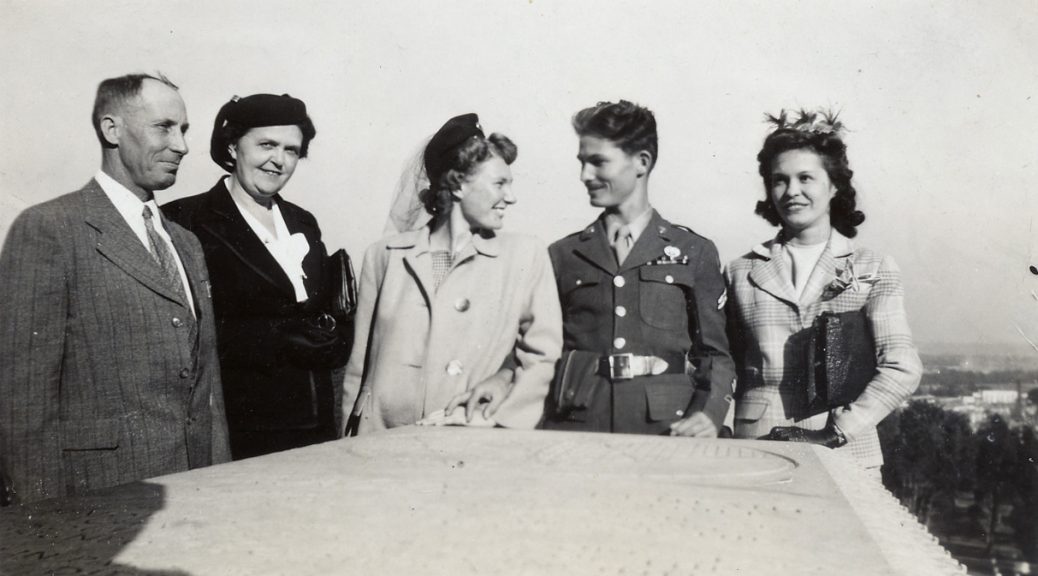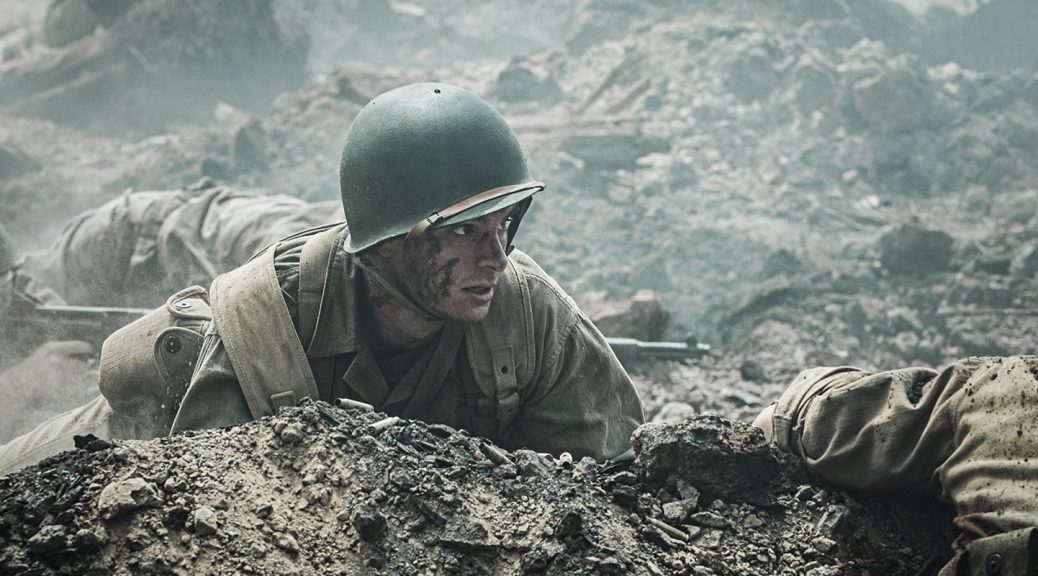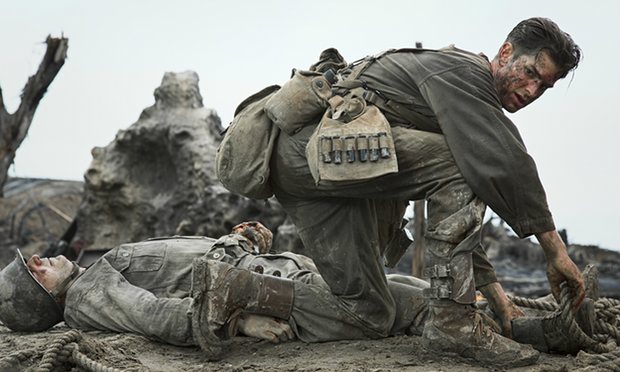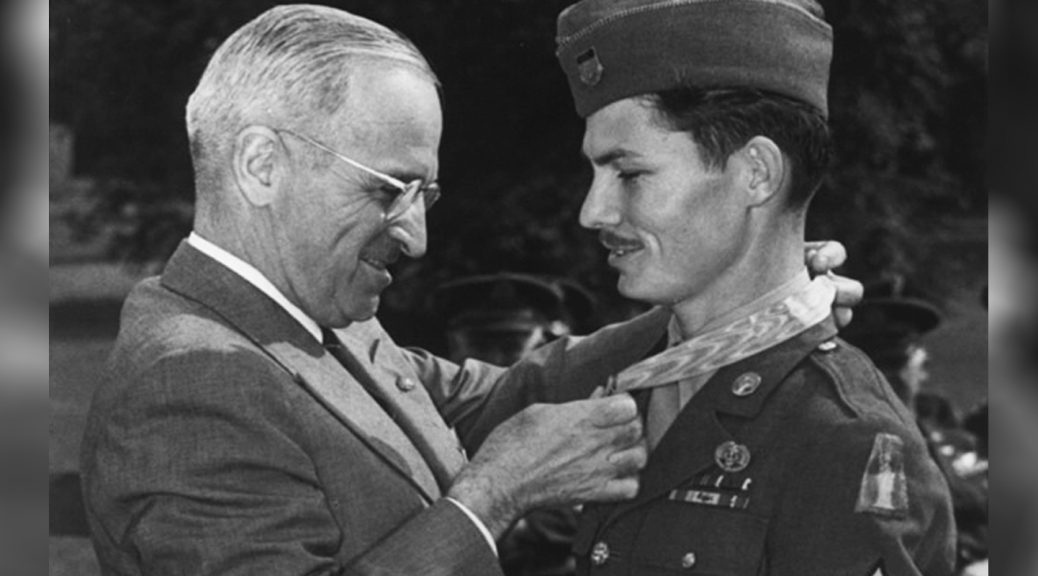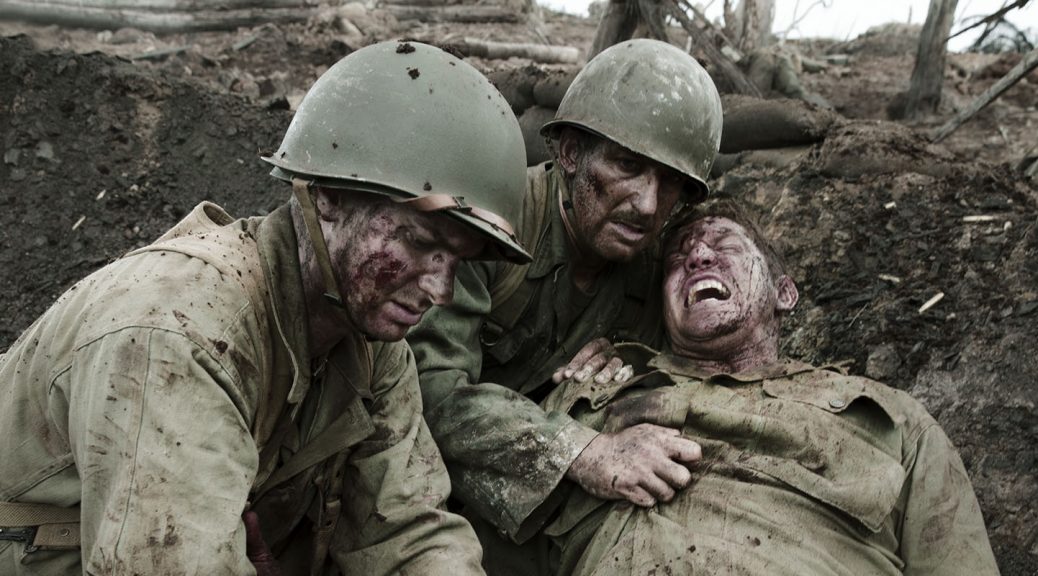The battle in Okinawa, Japan, began on April 1, 1945. A week earlier, on March 24, Desmond Doss penned the following letter to his mother, Bertha, and father, Tom.
Dear Mother and Dad,
This has been a nice, quiet Sabbath morning in which I have enjoyed making believe I was at home in church. First I took notes of how I thought the church would be if I were there, together with Dot (Dorothy), you know.
After I had my Sabbath school planned I started off with silent prayer, asking God to protect my loved ones back home and to give me a Sabbath day’s blessing. He certainly answered my prayer. I enjoyed my Sabbath school even if I had to take all the parts myself.
For my opening song I selected “Take the Name of Jesus With You.” I paid strict attention to the words. There is a sermon in each song if we really take notice of the words and apply them to ourselves. Then I asked God to continue to bless us all as He has in the past… I continued my service with the song “My Hope Is Built on Nothing Less”; you know, on the solid rock. There is a lot in this song as well as in the others.
…I am so glad the Lord can use me in His work. I asked Him to help us all do our part and finish giving the message of His soon coming. I thanked Him for using me to help save lives, but asked Him also that it might be His will to let me save some part in saving at least one soul. I know I cannot do anything of myself, but with God all things are possible. I want to be as good a missionary as possible now, so that I can do better work when I get back home.
For the next song I sang, “I Am Thine, O Lord”, and then reviewed the former Sabbath’s lesson, went through today’s lesson, and looked over next week’s lesson. These lessons are wonderful; they are a great encouragement to me. I am not sure that your lessons and memory verses are the same as mine, but Rev. 3:10, 11 is encouraging; also the ninety-first psalm. I got more meaning out of these texts than ever before; they are so appropriate for this time. I believe I got more truth out of them than most people back home. You see, I have witnessed the fulfilment of these inspired words with my own eyes. I know God has more power than all the world put together; so I pray that the Lord’s will and not mine may be done, for God knows what is best and I don’t.
After my prayer I sang “Saviour, Like a Shepherd Lead Us”. Then I thought of how the children in our home Sabbath school used to come in on the last stanza and repeat the memory verse, so I thought I would play their part by reading again God’s promise to me in Rev. 3:10, 11.
I closed with “Blest Be the Tie That Binds”. Then I thanked God for the fine Sabbath morning and the blessing He had given me. I got more out of this Sabbath than usual, though it may not sound like so much as I write it.
I then went for chow and came back and started writing you. I feel my chances of returning home are better than before, but even at that I do not allow myself to get too much confidence, for I know that overconfidence does not pay. If I fail to do my part in protecting life, the Lord will not help me, so I try to do my part and trust the Lord for the rest.
Well I sure will be glad when this war is over and we can come back home and live Christian lives among Christian associates. One thing the Sabbath school lesson brought out that impressed me is that if these experiences in the Army do not make us good Christians, nothing will. If we do not live up to all we know to be right, then we are not Christians. I know that if I do not live up to all the light I have, and if anything happens to me, I am a lost soul. That is why every hour of every day I endeavour to carry out all I know to be right. Life is not sure for anyone, so I try to keep ready for anything that may happen.
I believe that if the Lord wills, I will come through this and return home a much better Christian. This Army experience has made me stand on my own feet for Christ. I can see why the Lord saw best to separate us for a while, for this has brought me a deeper experience. I am so glad Dot is doing her part for the Lord. She will become better rooted and grounded in the faith by teaching this truth… to others. Keep praying for me, because I know God answers prayer.
Des.
Image courtesy of Desmond Doss Council.
